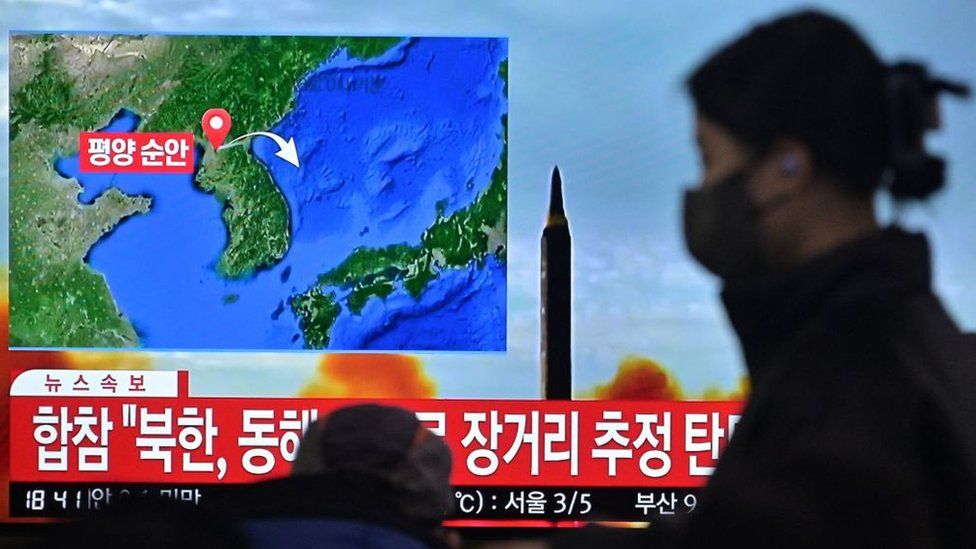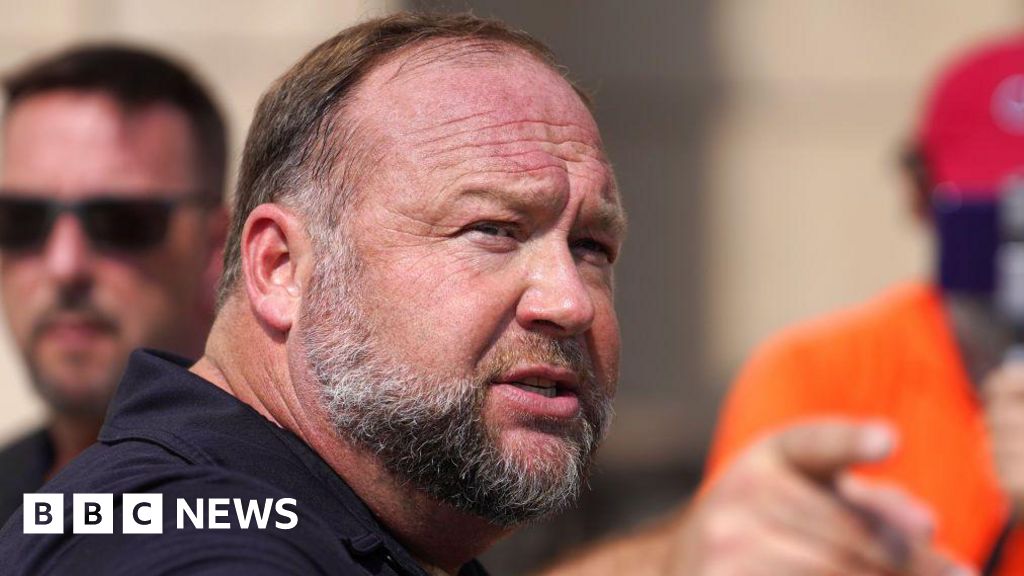ARTICLE AD BOX
 Image source, Getty Images
Image source, Getty Images
In North Korea, the missile test was shown on television
By Tiffany Wertheimer
BBC News
North Korea has fired an intercontinental ballistic missile (ICBM), Japan's government has said.
The defence ministry confirmed it was launched on Saturday, flew for 66 minutes and landed in the Sea of Japan.
It comes after Pyongyang showed off its massive military might in a parade that included more than a dozen ICBMs.
On Friday, North Korea threatened to unleash an "unprecedentedly strong" retaliation to any military drills between South Korea and the US.
The annual springtime exercises, which are due to start next month, are designed to help fend off North Korea's increasing nuclear threats. But Pyongyang has long insisted they are in preparation to invade North Korea.
Saturday's missile, which is the first to be launched since new year's day, splashed down west of Hokkaido, in Japan's exclusive economic zone (EEZ) at 18:27 (09:27 GMT), Japanese Prime Minister Fumio Kishida said. An EEZ is an area of the sea that a country has jurisdiction over. Japan's is a 200-nautical mile area off its coast.
It flew an estimated 900km (560 miles) and reached an altitude of 5,700km, government spokesperson Hirokazu Matsuno said in Tokyo. While that is incredibly high - the edge of space is about 100km - it is not the highest a North Korean missile has flown.
In November, an ICBM reached an altitude of 6,100km. Previously, in January 2022, North Korea released extraordinary photos of the Earth that it claimed were taken from a missile launch that reached 2,000km.
ICBMs are particularly worrying because of their long range, including mainland United States.
Japan's Defence Minister Hamada Yasukazu said Saturday's missile would have been able to do this, with a possible range of 14,000km.
"This series of actions by North Korea threatens the peace and stability of Japan and the international community, and is absolutely unforgivable," Mr Matsuno said.
South Korea's military reported the missile was launched from the Sunan district, north of Pyongyang, where the international airport is located. It is also where North Korea has launched most of its recent ICBM tests.
North Korea's ballistic missile and nuclear weapons programmes are banned by the UN Security Council. But this has not stopped Pyongyang from continuing with its weapons development, and holding elaborate military parades to show them off.
Just over a week ago, Pyongyang showed off its largest display ever of intercontinental ballistic missiles in a midnight military parade which was attended by leader Kim Jong-un.

 1 year ago
27
1 year ago
27








 English (US)
English (US)